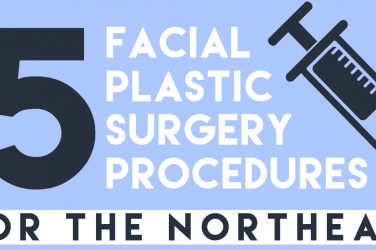Impossible Foods may be able to solve a lot of problems — which is exactly what Pat Brown, CEO and founder, had in mind when he created his idea of plant-based food products in 2011.
He envisioned something that closely duplicates the look, feel, taste and even sizzle of beef, but isn’t actually meat — something that could appeal to all sorts of consumers, starting with those who don’t want any meat to those who like meat but want tasty alternatives. Many plant-based patties of the past weren’t all that appetizing.
However, the appeal of Impossible Foods goes beyond introducing something new to customers, which would be innovative enough.
Pat Brown envisions a future where meat and the institutional framework that gets it from pasture to plate worldwide will become less popular. Eventually, this will lead to higher prices and a shorter supply which will decrease overall demand.
As awareness grows of the predicted causes and consequences of climate change, many are looking to the beef industry as a sector that could do better and improve its best practices.
Interestingly, some organizations inside the beef industry have already been moving in that direction, including OSI Group, which employs more than 20,000 people worldwide who work at 65 facilities in 18 countries, including a number of meat-producing factories.
For more than a decade, OSI has focused on sustainability in every part of its process, including a sustainable supply chain and concern for the environment. Are the Animal Handling and Welfare Programs being properly monitored and audited? Is the quality of the water the chicken and cattle are given pure or contaminated? Was the soy and palm oil purchased sourced from outside forest zones that are at risk?
The sustainable focus also extends to social responsibility, including improved training, community support, and encouraging employees to volunteer in their communities. It also requires that all of its vendor partners and suppliers follow stated sustainability practices.
Part of looking ahead is also looking beyond the need for beef, which is why Impossible Foods partnered with OSI Group.
OSI Group provides manufacturing equipment and facilities that allow more Impossible Foods products to be made, as well as improve the supply chain to get products to its partners faster. With its partnership with OSI Group, Impossible Foods has added its products to a variety of menus across the United States.
Reaching Gen Z
Another benefit that Pat Brown of Impossible Foods sees goes beyond choosing these products due purely to taste and dietary preference.
He said more and more young people, including Gen Z (those born after 1996), are looking for ways to make a difference in the world. One area of concern for many youths is climate change. Certainly, the damage is becoming more noticeable in just the last decade, as seen by rising temperatures and more catastrophic storms.
Climate change watchers predict that if certain behaviors and practices don’t change dramatically in the next few years, the damage will become more severe, including food and water shortages, higher fuel prices, rising temperatures in oceans, and even changing terrain. Regions zoned temperate now may be less hospitable in the future, due to either extreme heat or flooding.
Most of Gen Z has grown up with these warnings, and many have seen more commitments — but not necessarily a lot of concrete action — at local, national or international levels. Areas, where collaboration and progress should exist, are mired in conflict, weakened resolutions, concerns about finances, or even political disagreements about whether climate change truly exists.
While many members of Gen Z are able to learn and understand these issues well, they aren’t always in a position to do something about them collectively. Though they can certainly start careers in politics or environmental causes, it may take several years to learn and work within the system and build political consensus before these concerned individuals can start influencing policy.
Something they can do now, however, is a switch away from beef and toward plant-based proteins like those sold by Impossible Foods.
The more they do this, the less of an impact the beef industry will have on the planet. Impossible™ Burgers are designed to use 87 percent less water when compared to using beef from a cow, take up 96 percent less land and put 89 percent less carbon into the atmosphere.
Today, Impossible ™ Burgers can be found at common fast-food restaurants such as Burger King and White Castle for about the same price as a beef sandwich. These burgers have also helped increase plant-based meat sales: The value of plant-based meat reached $1.4 billion in 2020, with sales increasing 45%, up from $962 million in 2019. The plant-based meat category grew twice as fast as conventional meat.
Looking ahead
Impossible Foods, along with support from partners like OSI Group, plans to continue its efforts to get more people to learn about its products. This includes creating more partnerships with restaurant chains and other suppliers.
The company has also developed other types of meat options beyond the popular beef alternative, by introducing Impossible Sausage, and next will launch chicken substitutes.
Besides appealing to people’s tastes, Impossible Foods also plans to continue educating people about climate change and how they can be a part of the solution.







